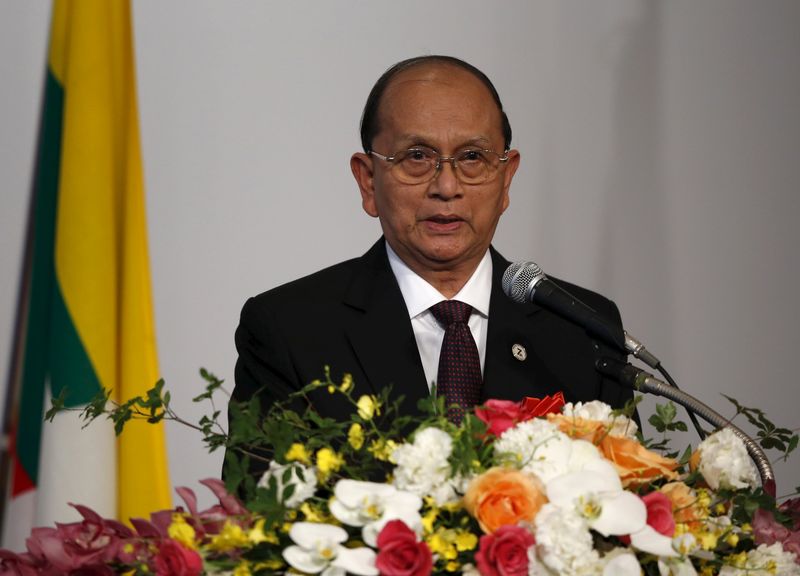YANGON (Reuters) - Myanmar President Thein Sein has indicated willingness to have a second five-year term in office after a parliamentary election in November, citing few younger people capable of continuing his government's reform agenda.
Thein Sein, 70, will not run in the ballot due to health concerns. But that does not rule him out of the presidency under Myanmar's hybrid military-civilian system, where there is no law stopping the new legislature from nominating him as one of its three presidential candidates.
"With my age and with some health concerns, I want to retire... But frankly speaking, in our country, there are very few young or even middle-aged people who could steer the country in the right direction," he told Friday's Nikkei Asian Review.
A second term, he said, depends on "the country's situation, the prevailing circumstances and wishes of the people."
Myanmar's stream of liberal reforms has won Thein Sein plaudits and helped transform an image tainted by his previous role as fourth-in-command of a military dictatorship shunned by the West for trampling on human rights.
Two allies from the president's reformist clique, Soe Thein and Aung Min, are also opting out of the election, a senior official from their Union Solidarity and Development Party told Reuters on Friday.
Though Nobel laureate Aung San Suu Kyi's National League for Democracy party is expected to do well in the ballot, the complex makeup of Myanmar's system means a sizable house presence gives no guarantee of positions in the executive.
The military-drafted constitution's controversial qualifications criteria also prevent Oxford-educated Suu Kyi from becoming president, because her two sons are British.
It is unlikely there will be clarity on presidential candidates until after the election, although several high-profile players have hinted at their interest.
Shwe Mann, who outranked Thein Sein in the military regime, is widely seen as having presidential ambitions and has risen in stature and popularity while parliament chairman.
Armed forces commander Senior General Min Aung Hlaing recently said he would consider a presidential nomination "if people ask me to do this duty".
In his Nikkei Asian Review interview, Thein Sein rejected talk of a backsliding in the political reforms he had initiated.

He said the priorities for this term were completing a peace process with ethnic minority rebels and redoubling efforts to boost infrastructure, exports and the manufacturing sector.